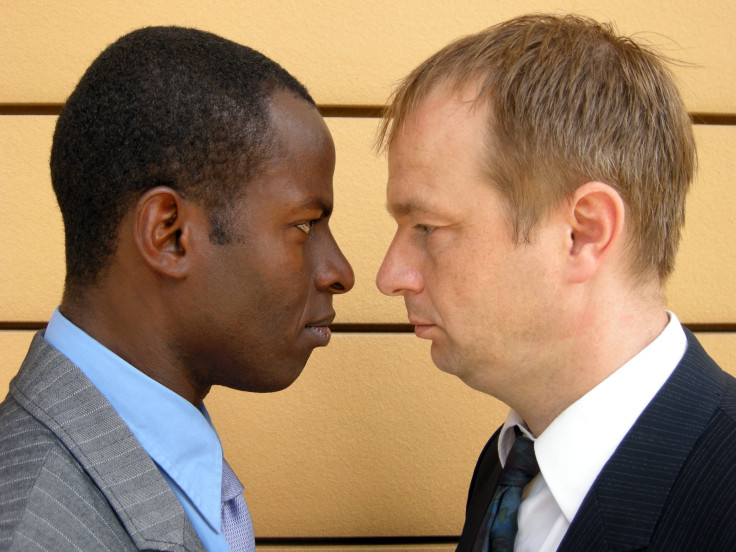Racism Always Exists, But It's More Obvious When The Economy Is Bad

Most racists are able to keep their deplorable beliefs in check in an effort to give off a somewhat amicable appearance to the public. But a new study suggests that when economic times hit hard, all bets are off and white people are significantly less likely to restrain their racism toward blacks.
In a study published in the Proceedings of the National Academy of Sciences, two researchers performed a series of race-based experiments on predominantly white test subjects and came up with some unsettling results. The study’s results were able to definitely link economic woes with the way people both perceive other races and act toward those who look differently from them, The Atlantic reported.
Biracial or mixed race individuals are the fastest growing minority in the United States, and have been able to identify as belonging to two or more races on the U.S. census since 2000. Still, the study showed that in tough times, white test subjects continued to only identify these individuals as "black" even if they only had a slight amount of black in their genetic makeup. For the study, the researchers used a computer program to blend black and white facial features in order to create an artificial biracial face. White study subjects tended to view biracial people as darker when experiencing financial strain. The more the subjects believed that whites and blacks were competing in a harsh economic market, the likelier they were to see the lighter-complexioned faces as “blacker,” The Atlantic reported. In some cases, faces that comprised only one-third black facial features were perceived as fully black by the white study subjects.
Unfortunately, the study also found that the white study subjects acted less generously to the computed generated black faces when associated with harsh economic times. The subjects were given $15 to “split evenly,” and ended up giving an average of 70 cents less to the darker of the two computer-generated faces that were presented.
David Amodio, a psychology professor from New York University and an author of the study, suggests that harsh economic times might have an effect on the psychological process of a person. “The fact that resources are scarce in society is enough to change the way an individual looks at other people,” Amodio explained to The Atlantic.
According to the authors of the study, these prejudices are not unique to the individuals who participated in the study. They believe that many people have prejudiced ideals that they are able to keep "in check through effortful cognitive control,” The Atlantic reported. Poverty does not exactly cause the racist ideologies, but instead is a catalyst at having them show through an individual’s outward behavior and thoughts. The researchers also feel that unless it's addressed, the racist behavior exhibited in harsh economic times could have serious consequences, especially on black communities. “This would play out in one-on-one situations — like when someone is applying for a bank loan, or dealing with their mortgages, or interviewing for a job,” Amodio explained. This may have already occurred because, during the 2008 recession, the median household wealth in whites decreased by 16 percent, while it decreased by 53 percent for blacks, according to The Atlantic.
Source: Krosch AR, Amodio DM. Economic scarcity alters the perception of race. Proceedings of the National Academy of Sciences of the United States of America. 2014.
Published by Medicaldaily.com



























